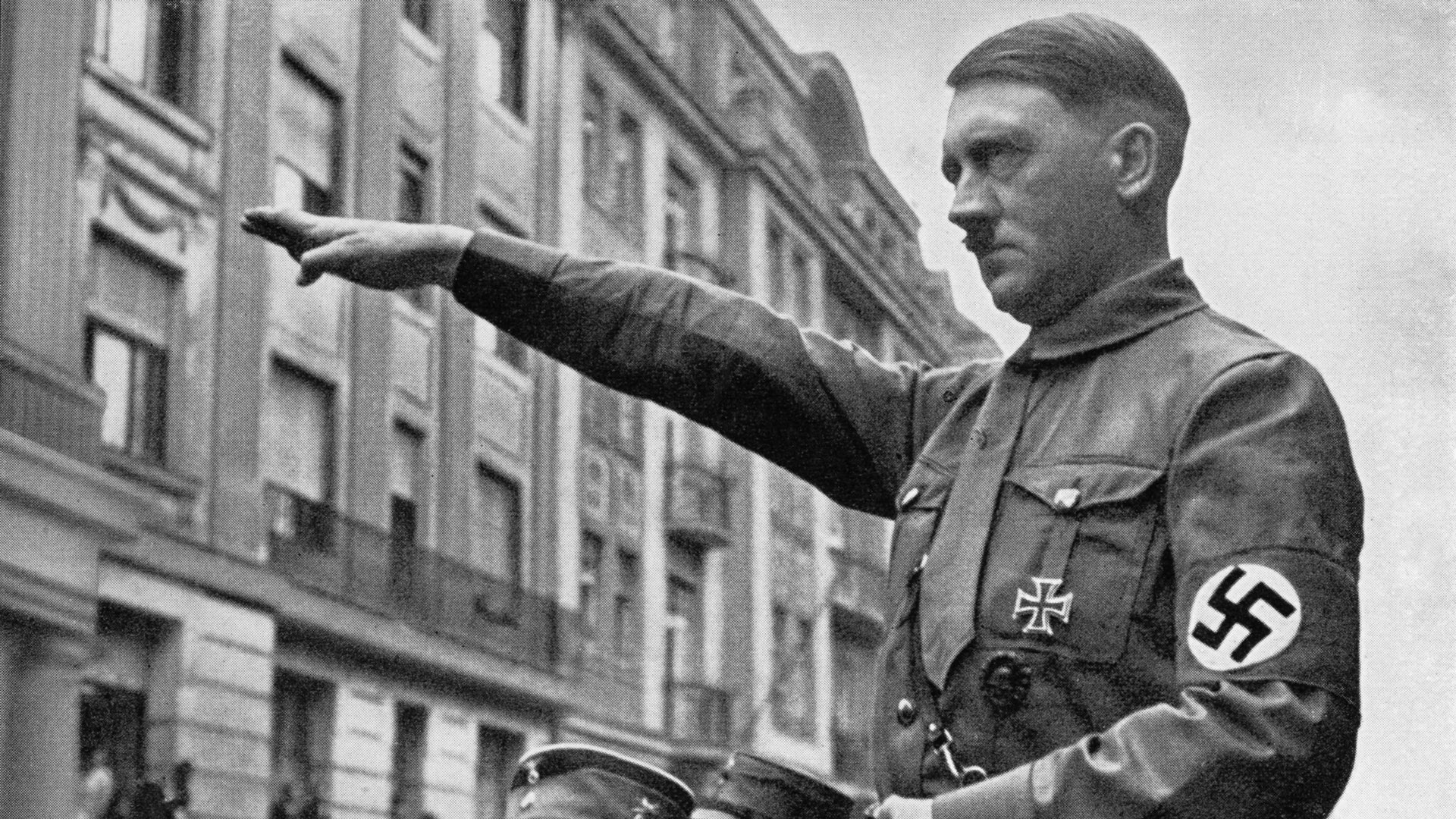This Hitler’s Biography in Germany delves into the controversial figure of Adolf Hitler, examining his life from birth to his rise to power and eventual fall. It provides insights into his military career, political ascent, and the lasting impact of his reign on Germany and the world. Additionally, the article addresses frequently asked questions about Hitler’s life, including his autobiography, military generals, and the legacy of his name in modern Germany.
Introduction
Adolf Hitler remains one of the most scrutinized figures in history. Born in Austria and rising to power in Germany, his legacy is marked by the atrocities of World War II and the Holocaust. Understanding Hitler’s biography is crucial for comprehending the complexities of 20th-century history. This article aims to present a comprehensive look at Hitler’s life, addressing key questions and providing a detailed timeline of his rise and fall.
Early Life and Military Career
Birth and Childhood
Adolf Hitler was born on April 20, 1889, in Braunau am Inn, Austria-Hungary. His early life was marked by a tumultuous family dynamic and a difficult relationship with his father, Alois Hitler. After his father’s death in 1903, Hitler’s life took a series of turns that would eventually lead him to Germany.
Military Service in World War I
Hitler volunteered for the German Army during World War I, serving in the 16th Bavarian Reserve Infantry Regiment. During his service, he was injured twice and received the Iron Cross First Class for bravery. His experiences in the war shaped his nationalistic views and laid the foundation for his future political ambitions.
Rise to Power
Entry into Politics
After the war, Hitler joined the German Workers’ Party (DAP), which later became the National Socialist German Workers’ Party (NSDAP), commonly known as the Nazi Party. His charismatic speeches and nationalistic rhetoric quickly propelled him to the forefront of the party.
The Beer Hall Putsch
In 1923, Hitler attempted to seize power in a failed coup known as the Beer Hall Putsch. This event led to his arrest and imprisonment, during which he wrote his autobiography, “Mein Kampf” (My Struggle).
Mein Kampf
“Mein Kampf” is Hitler’s autobiographical manifesto, detailing his political ideology and future plans. Published in 1925, the book became a cornerstone of Nazi propaganda and provided a blueprint for Hitler’s policies.
Hitler’s Reign
Appointment as Chancellor
In 1933, Hitler was appointed Chancellor of Germany by President Paul von Hindenburg. This marked the beginning of his dictatorship and the implementation of his radical policies.
Nazi Policies and Actions
Under Hitler’s leadership, Germany saw a series of radical changes, including the Nuremberg Laws, which stripped Jews of their citizenship, and the establishment of concentration camps. Additionally, Hitler’s aggressive foreign policy led to the annexation of Austria and the Sudetenland, culminating in the outbreak of World War II.
World War II
Key Generals
Hitler’s military strategies were heavily influenced by his generals, with notable figures such as Erwin Rommel, often referred to as Hitler’s best general, playing pivotal roles in the war.
The War and Its Aftermath
The war took a catastrophic toll on Germany and the world, resulting in millions of deaths and the destruction of numerous cities. Hitler’s strategic errors, such as the invasion of the Soviet Union, contributed to Germany’s eventual defeat.
Hitler’s Fall and Legacy
Defeat and Death
With the Allied forces closing in, Hitler committed suicide in his bunker on April 30, 1945. His death marked the end of the Nazi regime and the beginning of a new chapter for Germany.
The Legacy of Hitler
The legacy of Hitler is one of destruction and genocide. The name “Hitler” is largely banned in Germany, reflecting the country’s efforts to distance itself from its dark past.
Frequently Asked Questions
Who was Hitler’s best general?
Erwin Rommel is often considered Hitler’s best general due to his strategic brilliance and military successes, particularly in North Africa.
What was Hitler’s position in Germany?
Hitler served as the Chancellor of Germany from 1933 until his death in 1945. During this time, he also held the position of Führer, or leader, of the Nazi Party.
Is the name Hitler banned in Germany?
While the name “Hitler” is not legally banned in Germany, it is socially unacceptable and rarely used due to its associations with the atrocities of the Nazi regime.
What is the name of Hitler’s autobiography?
Hitler’s autobiography is titled “Mein Kampf,” which translates to “My Struggle.” It was published in two volumes in 1925 and 1926.
Conclusion
Adolf Hitler’s life and reign continue to be studied and debated. His rise to power, military strategies, and the horrors of the Holocaust serve as reminders of the dangers of unchecked power and extreme ideologies. Understanding his biography is essential for comprehending the complexities of modern history and the lessons that can be learned from it.
Table of Specifications
| Specification | Description |
|---|---|
| Birth Date | April 20, 1889 |
| Birth Place | Braunau am Inn, Austria-Hungary |
| Military Service | 16th Bavarian Reserve Infantry Regiment |
| Awards | Iron Cross First Class |
| Political Party | National Socialist German Workers’ Party (NSDAP) |
| Key Events | Beer Hall Putsch, Appointment as Chancellor, World War II |
| Autobiography | Mein Kampf |
| Key Generals | Erwin Rommel, Heinz Guderian, Erich von Manstein |
| Major Policies | Nuremberg Laws, Concentration Camps, Aggressive Foreign Policy |
| Death Date | April 30, 1945 |
| Place of Death | Führerbunker, Berlin |
| Legacy | World War II, Holocaust, Repudiation in Modern Germany |
| Banned Name | Socially unacceptable in Germany |
| … | … |
Related YouTube Video
Why You Should Read This Article
Understanding the biography of Adolf Hitler is crucial for grasping the complexities of 20th-century history. This article provides a comprehensive overview of Hitler’s life, from his early years to his rise to power and eventual fall. It addresses key questions and offers insights into the lasting impact of his reign on Germany and the world. Whether you’re a history enthusiast or simply curious about one of the most controversial figures in history, this article offers a detailed and engaging exploration of Hitler’s biography.



